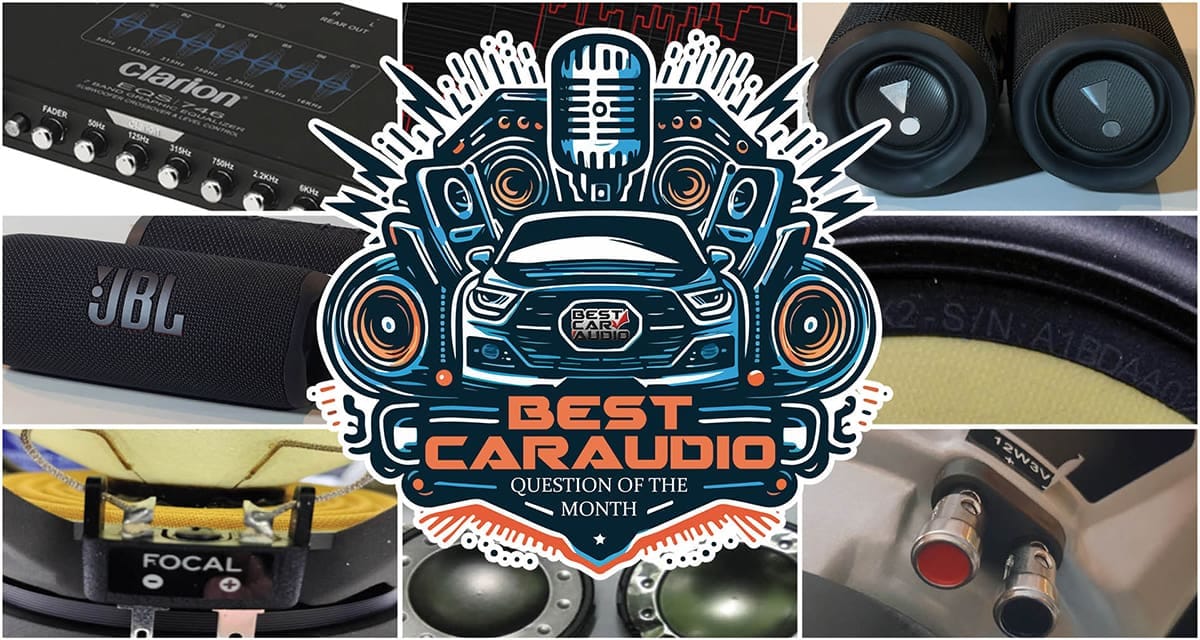This Question of the Month is: Is there such a thing as fake car audio equipment? As they say, you already know the answer if you have to ask. If you have an email account or spend more than a minute a day on social media, then you know fraud is rampant almost everywhere we look. We get emails from UPS and Google all the time about fake shipments or notices from banks about needing to reset a password. Why? Because the bad guys are making money doing it. Sadly, this activity extends beyond phishing emails to counterfeit and fake car audio equipment. Let’s discuss.
Fake Car Audio Equipment
We conducted a little survey a few weeks ago, asking industry friends if they’d encountered any counterfeit or fake car audio equipment. Surprisingly, more had than we expected. It seems that whenever a product becomes popular, someone will create a fake version to dupe consumers.
Over a decade ago, one of our staff members worked for Clarion. Their EQS746 1/2-DIN equalizer was incredibly popular. Sure enough, someone manufactured a clone of this unit. Side by side, it was easy to tell from the artwork on the top panel which was authentic and which was a reproduction. However, if you didn’t have the real deal in your hand, it was much harder to identify.
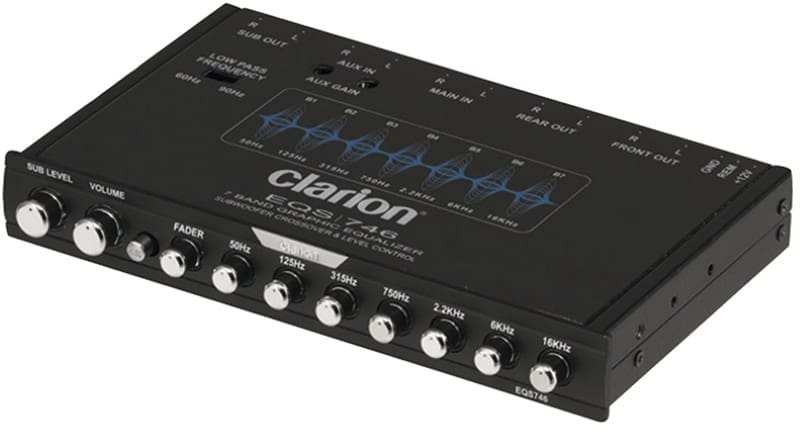
Over the years, there have been bogus Alpine, JBL, KICKER, Rockford Fosgate, Hertz, and Focal products, just to name a few.
Fake High-End Car Audio Speakers
We got a call about a year ago from a local shop dealing with a client who had purchased Focal ES KX2 component speakers. The technician working on the car felt that something was off. The client claimed they’d bought the speakers from an authorized online retailer. After installing them, it was clear they weren’t authentic.
Aside from their performance, two big hints made them doubt the product’s validity. First, the laser-engraved serial number on the surround was crooked. Second, the sticker on the speaker terminal cover was misaligned.
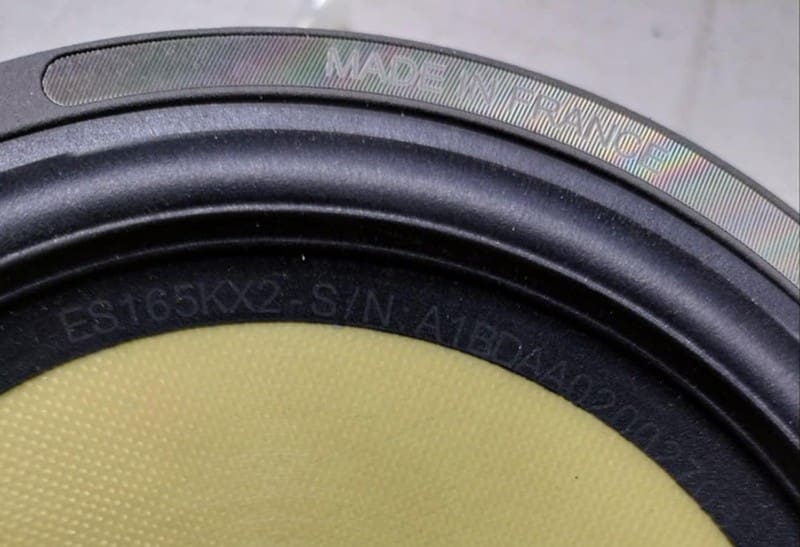
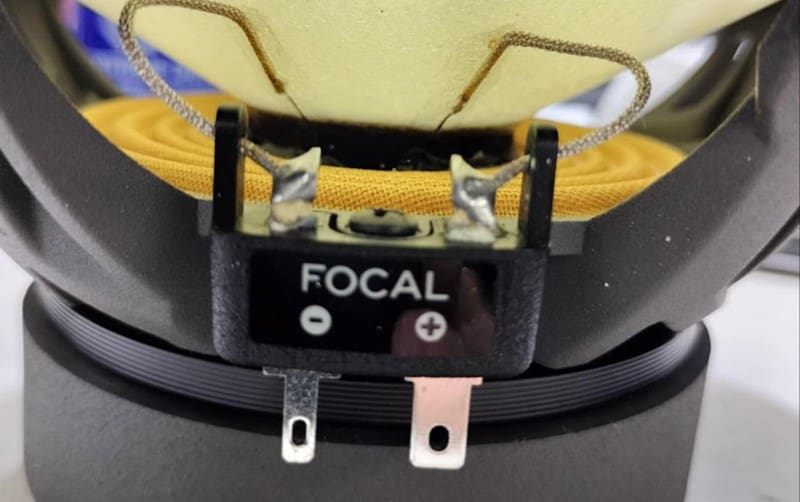
Counterfeit Bluetooth Speakers
In the summer of 2024, a team member leased a new vehicle. If you’ve leased or purchased a new car, then you know that dealerships often provide a gift with the purchase. In this case, the gift was a Bluetooth speaker that looked almost exactly like the JBL Flip 6. It was immediately apparent that the speaker was fake, as no JBL logos were on the packaging. However, the packaging design mimicked the genuine artwork.
The owner has many Bluetooth speakers, so the fake Flip 6 went on the shelf with the genuine Sony and JBL speakers they already owned. His kids would borrow speakers whenever they wanted. And as kids do, they wouldn’t return them. At one point, the fake speaker made it into standard rotation. In most instances, the dad would have to retrieve the speakers when he wanted to use them. Oddly, the fake JBL returned on its own. When asked why they brought it back, the answer was that it sounded terrible.
As luck would have it, an acquaintance has a genuine JBL Flip 6, so let’s do a quick measurement to show that just because things look similar on the outside, the performance can vary significantly.
Testing a Fake Bluetooth Speaker
The test scenario is simple. We’ll connect each speaker to a Windows computer via Bluetooth. This mimics how the speakers would be used in the real world. We’ll play pink noise through each speaker and adjust the volume level so they are as close as possible to each other. Then, we’ll measure each speaker’s frequency response at a distance of two meters (6.56 feet) using pink noise to quantify their tonal balance.
Even without seeing the graphs, it was evident that the startup sound through the fake Flip 6 speaker sounded much worse than the genuine unit. There was no authority to the sound, and there was some crackle at the end.
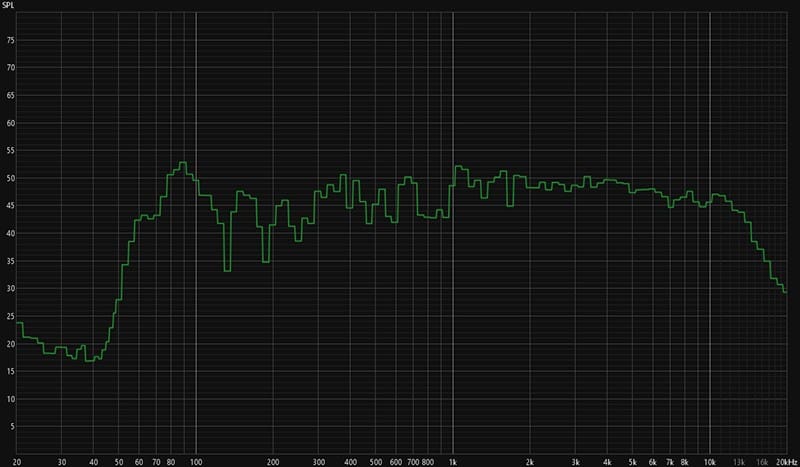
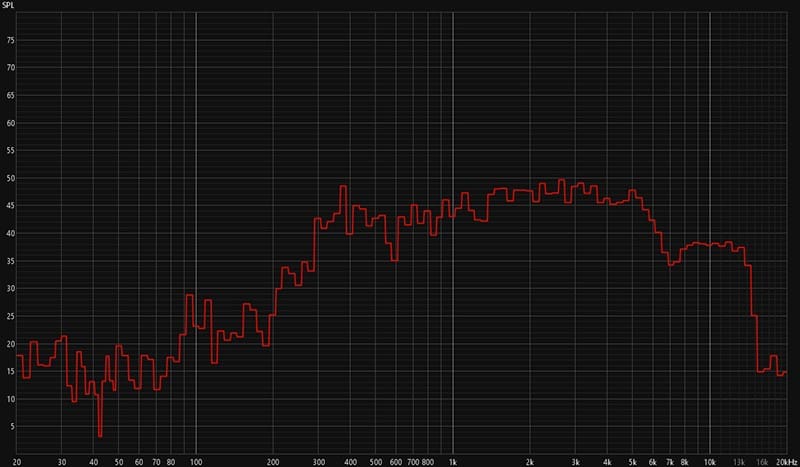
Analyzing the Bluetooth Speaker Measurements
Even without advanced knowledge of audio measurements, it’s easy to see that the real JBL Flip 6 offers much smoother and extended response than the fake does.
To explain the graphs, the traces show the volume level of different frequencies. We didn’t calibrate the actual amplitude of the mic, so the numbers on the left side of the scale aren’t absolute SPL levels, but the scale is accurate. Both speakers played at 67.6 dB SPL with a C-weighting for the measurement. This isn’t loud, but it’s also not background music level.
Looking at the green trace of the JBL Flip, we can see it plays down to almost 70 hertz, with output within about five dB of the average. The fake speaker is done by 300 Hz on the bottom, making it sound more like what you might hear from an older smartphone than a small stereo system. The JBL is flat out to about 12 kHz on the top end, whereas the fake rolls off steeply at 5.5 kHz. Twelve to 14 kHz is the upper limit of most people’s hearing. These numbers easily explain the nasally sound of the fake product.
The dips at 131 and 188 hertz on the JBL are cancellations caused by reflections off the floor and the ceiling in the listening room. Adding thick carpet to the floor might help minimize this.
One last note: though we didn’t measure it, the genuine JBL speaker will play much louder than the counterfeit unit—not by a few dB, either. We’re talking about 10 times as loudly.
Be Cautious with Your Car Audio Purchases
If you are concerned about the authenticity of the car audio products you want to purchase, here are a few steps to help ensure you are getting exactly what you expect.
First, shop at an authorized brick-and-mortar specialty retailer. It’s easy to see when a shop supports a brand and when it doesn’t. If they don’t have a display board loaded with several models and stock a good amount of inventory, that’s a sign they aren’t an authorized dealer.
Second, avoid pawn shops, flea markets, and discount retailers. If the price of a new-in-box product seems too good to be true, it probably is. If there are fake Prada and Gucci purses around, the chances of the audio gear being legit are slim.
Finally, be extremely cautious of buying online. You can check the manufacturer’s website to see if a particular online retailer is authorized to sell the product you have in mind. If you aren’t sure, call the manufacturer or distributor and ask. Their sales team knows who has signed an agreement to sell through their website and who hasn’t. If you purchase a product from a retailer that isn’t authorized, you won’t have a warranty, even if the product is legitimate and authentic.
